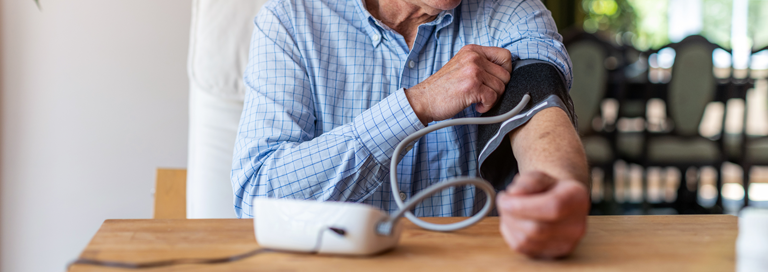As long as I’m a doctor, I’m going to keep telling you about natural treatments and therapies that can save your life and protect your health.
And I’ll also continue to share real stories that highlight the damage caused by collusion between Big Pharma and mainstream medicine.
It just happened to one of the researchers who works at my Wellness Research Foundation. She told me that her OB/GYN wanted to put her on a high blood pressure medication. When I asked how high her numbers were, she told me it was 135/88.
Now this used to be considered a normal reading. But in 2017, new guidelines from the American Heart Association, the American College of Cardiology, and nine other health organizations lowered the numbers for the diagnosis of hypertension.
Overnight, millions more people were considered “at great risk” and prescribed medications, including:
-
- Calcium channel blockers. These cause your arteries to relax and dilate. This reduces blood pressure and improves circulation. At the same time, it slows the heart rate. Studies show that people taking calcium channel blockers have a 60% increased risk of a heart attack compared to people who used other blood pressure meds. Other side effects include: headache, flushing, constipation, nausea, edema, and low blood pressure.
- ACE inhibitors. These drugs are designed to cause blood pressure to fall, and the amount of blood pumped by the heart to increase. They are linked to severe reactions including atrial fibrillation, kidney failure, and death.
- Diuretics. These simple water pills remove water from your blood. But, they cause weakness, dizziness, muscle cramps, impotence, gouty arthritis, diarrhea, joint pain, and more.
- Beta blockers. They block their response to norepinephrine, a hormone that tells the arteries to tighten and the heart to speed up. They lower blood pressure by slowing the heart and relaxing the blood vessels. But, side effects include: fatigue, dizziness, insomnia, nausea, depression, and loss of libido. Worse yet, they can even raise triglyceride levels and cause heart palpitations.
Of course, keeping blood pressure at optimal levels is vital for your health. High blood pressure can lead to heart attack, stroke, brain aneurysm, Alzheimer’s, and kidney failure. However, I consider blood pressure pills to be a last resort.
Lower Blood Pressure Safely And Naturally
Luckily, there are different ways you can lower your blood pressure naturally. Here are two you can try tonight…
-
- Take the sleep hormone to reduce blood pressure. Melatonin dilates blood vessels and inhibits the fight-or-flight stress reaction in the hypothalamus. Recent research found that melatonin significantly reduced both nocturnal and morning blood pressure on average 8/3.5 mm Hg for systolic blood pressure/ diastolic pressure, respectively.1 A second study found melatonin lowered systolic blood pressure by about 6 mm/Hg, and diastolic pressure by 4 mm/ Hg.2 Not surprisingly, the studies also indicate that melatonin improves sleep quality, which allows the body to relax more. But they also show that melatonin is involved in biochemical reactions that influence blood pressure levels. Click here to find out how much melatonin to take.
- Sip tea from Bali’s sacred healer. On my trips to Bali, I learned that the natives have used lotus as a medicine for hundreds of years. Now science confirms that lotus seeds contain a compound called neferine that increases nitric oxide (NO) production. NO regulates your blood pressure by dilating your blood vessels.3 NO also protects blood vessels from vascular aging ― the gradual changes that happen to the vascular structure and function, including hardening of the arteries and increasing blood pressure. Look for lotus extract powder that contains both the flower and its leaves. Add 1 ½ teaspoon to 2 cups of boiling water. Allow to steep 15 minutes, add raw honey, and enjoy.
To Your Good Health,

Al Sears, MD, CNS
References:
1. Gubin D.G. et al. (2016). “Daily melatonin administration attenuates age-dependent disturbances of cardiovascular rhythms.” Curr. Aging Sci., DOI 10.2174/1874609809666151130220011
2. Cheer FA, et al. “Daily nighttime melatonin reduces blood pressure in male patients with essential hypertension.” Hypertension. 2004;43(2):192-197.
3. Peng Z, et. al. “Protective effect of neferine on endothelial cell nitric oxide production induced by lysophosphatidylcholine…” Can J Physiol Pharmacol. 2011;89(4):289-94

